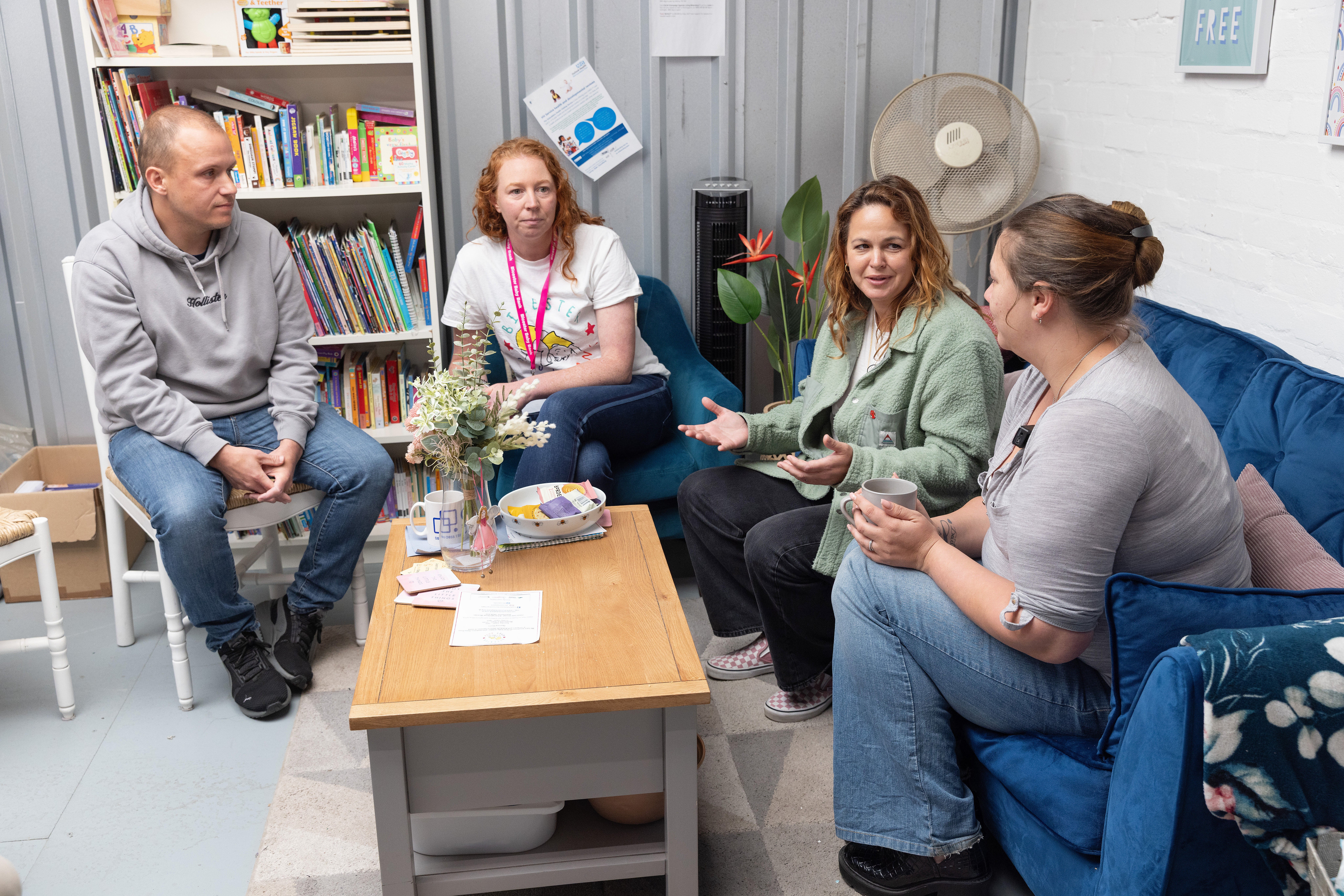The UK is facing a child poverty crisis, with The Independent revealing the number of parents struggling to feed and clothe their children is rocketing.
Baby bank use surged 35 per cent last year, according to data shared with this publication, as more and more families seek support amid the cost of living crisis and record-high child poverty levels.
Celebrities, including actor Giovanna Fletcher, MPs and campaigners have demanded to know how this can be happening in the UK, as they call for more support for families.
But in the meantime, parents are struggling to afford key items for their children, which is where the help of baby banks comes in.
Often run by volunteers from community halls, warehouses and even front rooms, baby banks are a lifeline for families, providing a safe, supportive service for those in need. This is primarily in the form of giving out essential items like clothing, nappies, toys, prams and more – but also in offering a safe space.
However, many don’t know that baby banks exist, or if they do, don’t know where their nearest one is.
Therefore, here is a map of locations of baby banks across the UK:
The families this publication spoke with said they had not heard of baby banks before they started using them.
But the need is only increasing as stark government figures show that the number of impoverished youngsters in Britain soared by 200,000 from 4.3 million to 4.5 million between 2023 and 2024.
More than 3.5 million essential items were handed out by baby banks in 2024, including nappies, clothes and cots, according to the data from the Baby Bank Alliance (BBA) – an increase of 143 per cent on the previous year.

The new figures come after Labour delayed its flagship plan to cut child poverty until the autumn, although it insists the strategy will be “ambitious”. Meanwhile, ministers debate whether or not to scrap the two-child benefit cap as the cost of living crisis continues to bite, and statutory Maternity Pay (SMP) remains equivalent to less than half the 2025 national living wage.
Parents said they wanted to draw awareness to baby banks so other families can benefit and to encourage people to donate.
Single father Adam Coggins, 34, was living in temporary accomodation with his daughters, aged two and three, and worrying about being able to feed them when a health visitor suggested he go to a baby bank.
“It was difficult to start with, I’ve always paid my way,” he said.
“[But] it’s surprising when you go there how many people are there needing the help... surprising how many people have stories like mine. You see how much the community comes together – it’s becoming a popular, useful place for lots of struggling people.”
Surge in parents turning to baby banks as UK’s child poverty crisis laid bare
Defence review is ‘message to Moscow’ – Healey
Migrant daily arrivals top 1,000 for first time this year
Not providing public cash for arms ‘student union politics’, says Healey
Dr Michael Mosley’s wife reveals final moments before he died in first interview







